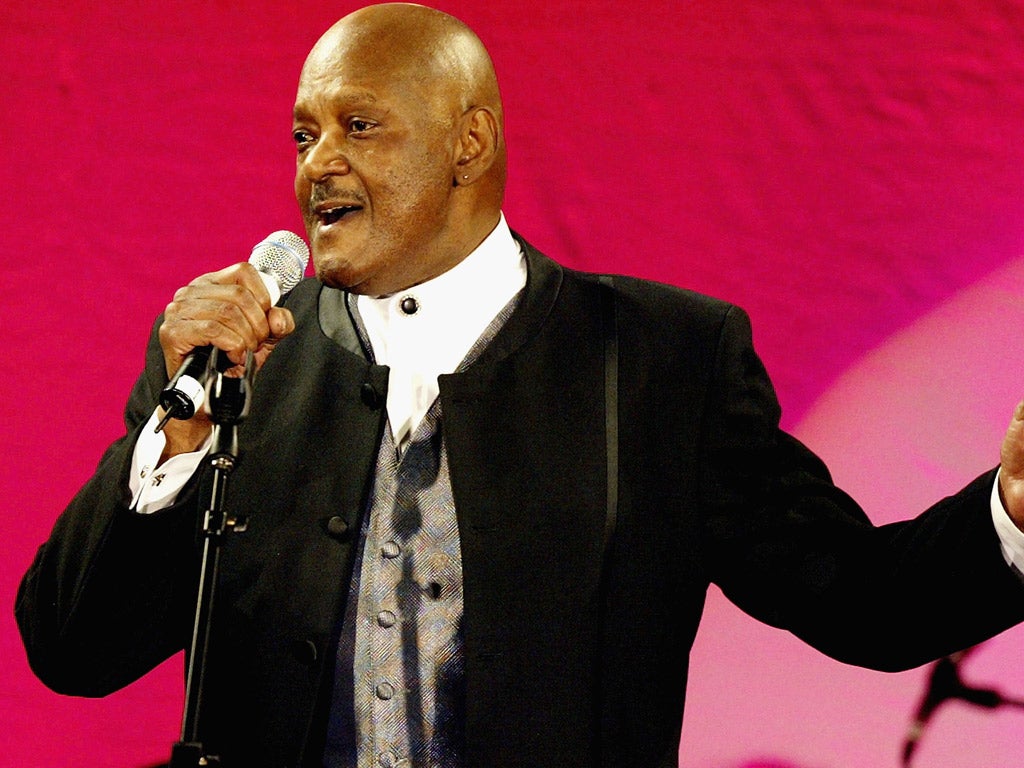
There have been wonderful, anthemic records about the beneficial powers of popular music – Chuck Berry's "Rock And Roll Music" (1957), Cliff Richard's "Move It!" (1958), Danny and the Juniors' "Rock And Roll Is Here To Stay" (1958), the Showmen's "It Will Stand" (1961), John Miles' "Music" (1976), the Who's "Long Live Rock" (1974) – but there are not many of them. However, Dobie Gray is associated with two such celebrations – "The In Crowd" (1965) and "Drift Away" (1973):
Dobie Gray was born Lawrence Brown, close to Houston, Texas in 1940; his grandfather was a Baptist minister. His father would not tolerate blues in the house, but country music was acceptable and Gray grew up with a love for Hank Williams and Red Foley. For many years he sang in church but he moved to Los Angeles to start a career as a popular singer. His first records were made as Larry Dennis but, following advice from Sonny Bono, he changed his name to Dobie Gray, taking his inspiration from the TV series, The Many Loves Of Dobie Gillis. His first single under his new name, the Motown-styled "Look At Me" (1963), made the US Top 100.
In 1965, under the producer Fred Danian, he recorded Bill Page's disco song, "The In Crowd", with its much-quoted line "The original is still the greatest". It made the US Top 20 and was a minor hit here. In 1974, it was revived very successfully by Bryan Ferry, a man who was always part of the in crowd.
Gray's follow-up, "See You At The Go-Go", was not as strong but he was unlucky not to have a major hit with "Out On The Floor" in 1966. It became a favourite in Northern Soul clubs, and in 1988 it was sampled by Spearmint on "Sweeping The Nation".
Gray was often let down by weak material – sometimes, it must be said, written by himself – but he had a pleasant voice, not far from Sam Cooke's, although he could rasp if he wanted. He was also an actor, appearing in the Los Angeles production of Hair for two years. In the early '70s he sang in the rock band Pollution and he also made demos in his spare time, some for the songwriters, Paul and Mentor Williams. They wrote "A Better Place" for him, and then Mentor gave him "Drift Away".
"Drift Away" made the US Top 10 and UK Top 30, but is better known than many No 1s. Mentor Williams had spent time in Nashville and it was about the frustrations of trying to break through. The song has been recorded by Roy Orbison, Ray Charles and Rod Stewart. In 1992, it was a UK hit for Michael Bolton and in 2003, Uncle Kracker's version, with Gray's guest appearance, topped the US Easy Listening charts. Even today, you can't beat its statement of intent: "Give me the beat, boys, and free my soul, I want to get lost in your rock'n'roll, And drift away."
Mentored by Williams, Gray made several albums that merged country songs with soul singing such as Drift Away (1973), Loving Arms (1973) and Hey Dixie (1974). His superb version of Tom Jans' "Loving Arms" is even more emotional than Elvis Presley's version. In 1979, he had a small hit with "You Can Do It", and his album, Diamond Cuts (1999) contained a brilliant version of "It's Over".
Spencer Leigh
Lawrence Darrow Brown (Dobie Gray), singer and songwriter: born Simonton, Texas 26 July 1942; died 6 December 2011.
Subscribe to Independent Premium to bookmark this article
Want to bookmark your favourite articles and stories to read or reference later? Start your Independent Premium subscription today.

Join our commenting forum
Join thought-provoking conversations, follow other Independent readers and see their replies